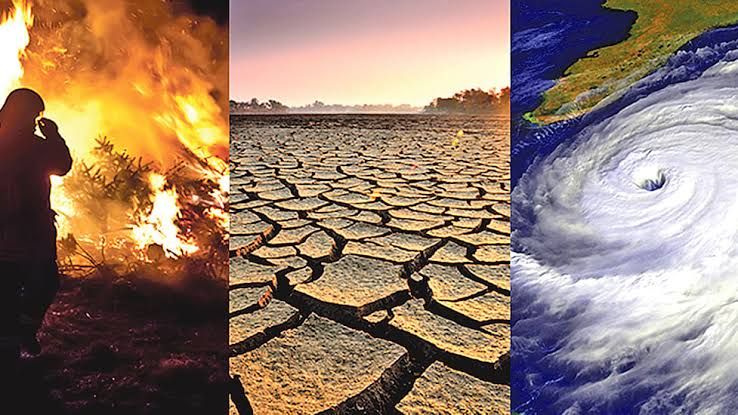
Bismillaher Rahmanir Rahim.
Assalamu Alaikum Wa Rahmatullahi Wa Barakatuhu
Dear Companions Today I want to share with you some words about the evils of killing foetuses.Welcom to this post and congratulations to all
Why Sea Levels Rise
The rising of sea levels is a critical global issue, with widespread implications for ecosystems, human communities, and infrastructure. Sea level rise primarily results from two processes, both of which are influenced by human-driven climate change: the thermal expansion of seawater and the melting of ice from glaciers and polar ice caps. The overall result is a slow but steady increase in global sea levels, which is measured by satellite data and other oceanographic tools.
Causes of Sea Level Rise
Thermal Expansion of Seawater When seawater warms, it expands. This expansion, known as thermal expansion, contributes significantly to rising sea levels. Water, like most substances, increases in volume as its temperature increases. Over the past century, the ocean has absorbed a substantial amount of the heat from climate change, leading to thermal expansion and, consequently, a rise in sea levels.
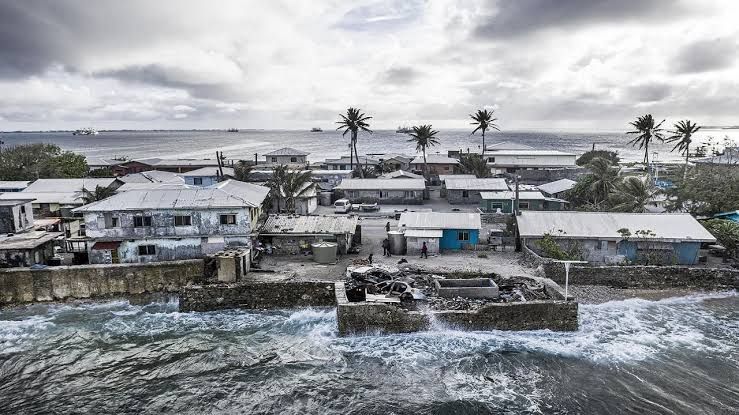
source
Melting of Ice and Glaciers Large ice sheets in Greenland, Antarctica, and glaciers around the world are melting due to rising global temperatures. When these ice masses melt, they release additional water into the ocean. The polar ice caps, which have historically stored vast amounts of water, have been experiencing accelerated melting rates over the past few decades, causing more water to flow into the sea.
Melting of the Greenland and Antarctic Ice Sheets The Greenland and Antarctic ice sheets contain vast quantities of water frozen in the form of ice. If fully melted, these ice sheets could lead to catastrophic rises in global sea levels. Recently, warmer temperatures have increased the melting rates in these regions, making them one of the major contributors to global sea-level rise.
Melting of Permafrost Another, often less discussed, contributor is the melting of permafrost. Permafrost is permanently frozen ground in polar regions. Its melting releases both water and methane, a potent greenhouse gas, which further accelerates warming and melting in a feedback loop that can contribute indirectly to sea-level rise.
Changes in Ocean Currents and Wind Patterns Shifts in wind patterns and ocean currents can redistribute water within the ocean, causing uneven sea level changes in different regions. This effect is particularly evident in areas like the Pacific and Atlantic Oceans, where shifts in currents and winds have caused variations in regional sea levels. While these effects are usually smaller than those caused by warming and ice melt, they still play a role.
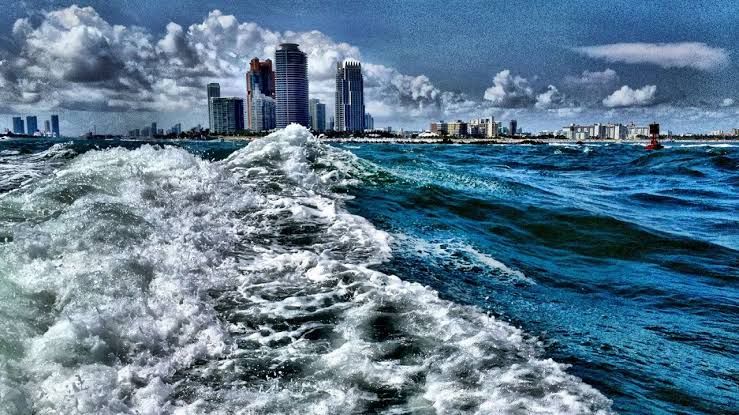
source
Effects of Sea Level Rise
Flooding of Coastal Areas One of the most direct impacts of sea level rise is coastal flooding. Low-lying coastal regions and islands are particularly vulnerable, as even a modest rise can increase the risk of flooding. Cities such as Miami, New York, and Mumbai face increasing flood risks, which threatens infrastructure, housing, and economies.
Loss of Habitats and Biodiversity Rising sea levels can destroy coastal habitats, such as mangroves, coral reefs, and wetlands, which are critical for maintaining biodiversity and ecosystem health. When seawater inundates these habitats, it disrupts the natural balance, leading to the decline of species that depend on these environments for shelter and food.
Increased Frequency of Extreme Weather Events Sea level rise is linked to an increase in the severity and frequency of storms, hurricanes, and typhoons. Higher sea levels allow storm surges to push farther inland, causing greater damage during extreme weather events. This has direct implications for communities living along coastlines and increases the risk to life and property.
Soil and Groundwater Contamination As seawater levels rise, saltwater can seep into freshwater aquifers, contaminating drinking water sources. This issue, known as saltwater intrusion, affects agricultural areas and can lead to lower crop yields. The contamination of groundwater sources is particularly concerning for regions that rely on well water or have limited access to freshwater resources.
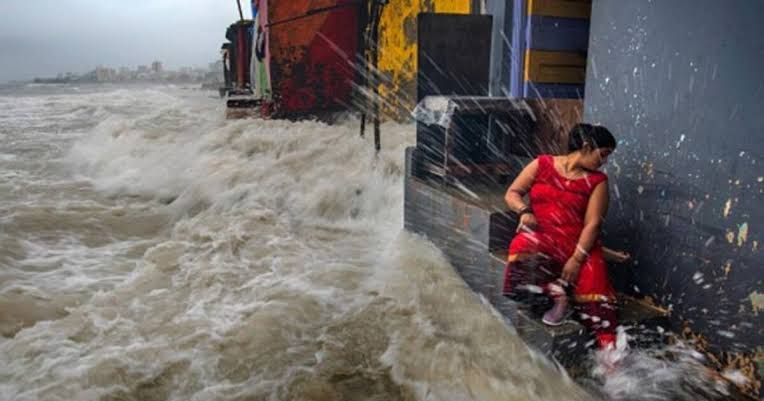
source
Displacement of Human Populations Rising sea levels will force millions of people living in coastal regions to relocate as their homes become uninhabitable due to flooding or erosion. The resulting displacement could lead to increased urbanization, resource scarcity, and strain on infrastructure in areas receiving these populations. Entire nations, such as the Maldives, face existential threats as rising waters risk submerging entire islands.
Economic Consequences The economic cost of sea level rise is substantial. Damage to infrastructure, loss of property, and decreased agricultural productivity all contribute to the economic burden. In addition, coastal communities often rely on tourism, which can be negatively affected as shorelines erode, and coastal beauty is diminished.
How to Mitigate Sea Level Rise
Reduce Carbon Emissions The most direct way to address sea level rise is to reduce carbon emissions, which are the main driver of climate change. Moving towards renewable energy sources like solar, wind, and hydroelectric power can reduce dependency on fossil fuels, which are a major contributor to greenhouse gases.
Protect and Restore Coastal Ecosystems Coastal ecosystems like mangroves, salt marshes, and coral reefs play a critical role in absorbing wave energy, reducing erosion, and capturing carbon. By restoring these ecosystems, we can improve coastal resilience to sea-level rise while simultaneously removing carbon from the atmosphere.
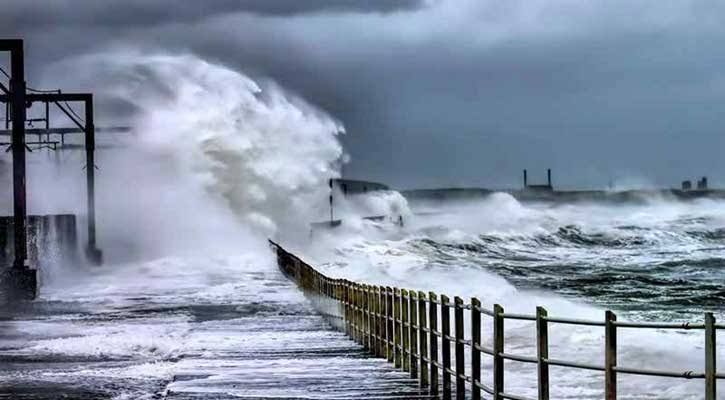
source
Building Coastal Defenses Many cities are investing in infrastructure to protect against rising sea levels. Seawalls, levees, and storm surge barriers can help to protect coastal areas from flooding. Some cities are also experimenting with floating structures and flood-resistant buildings to adapt to future sea level changes.
Managed Retreat In certain cases, the most viable solution may be managed retreat, which involves relocating communities away from vulnerable coastal areas. While controversial and costly, this approach can reduce long-term risks for populations at high risk from sea-level rise. Countries like Indonesia have begun implementing relocation plans for their capital to avoid severe impacts of flooding and sea level rise.
Improving Water Management Innovative water management techniques, such as controlled aquifer recharge and improved stormwater systems, can help reduce the impacts of saltwater intrusion and groundwater contamination. Protecting freshwater resources and ensuring sustainable water use can mitigate some of the effects of sea-level rise on drinking water supplies.
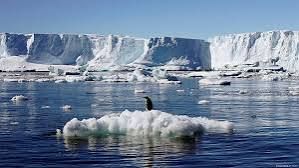
source
International Agreements and Policies Tackling sea level rise requires international cooperation and policy initiatives. Agreements like the Paris Climate Agreement aim to keep global temperature increases below 2°C, which would help slow the rate of sea level rise. Governments around the world must commit to stronger climate policies to prevent the worst outcomes.
source
Sea level rise is a complex issue driven largely by climate change, with far-reaching consequences that affect nearly every facet of human life and natural ecosystems. As the impacts of rising seas become more apparent, proactive efforts to curb carbon emissions, protect vulnerable ecosystems, and implement adaptive measures will be essential. Solutions range from local actions, like restoring coastal ecosystems, to global policy changes, such as enforcing carbon reduction targets. Through a combination of mitigation and adaptation strategies, we can reduce the rate of sea level rise and protect our communities and natural environments. However, the window for action is narrow, and urgent, concerted efforts are required to prevent the most severe consequences of a rising sea.